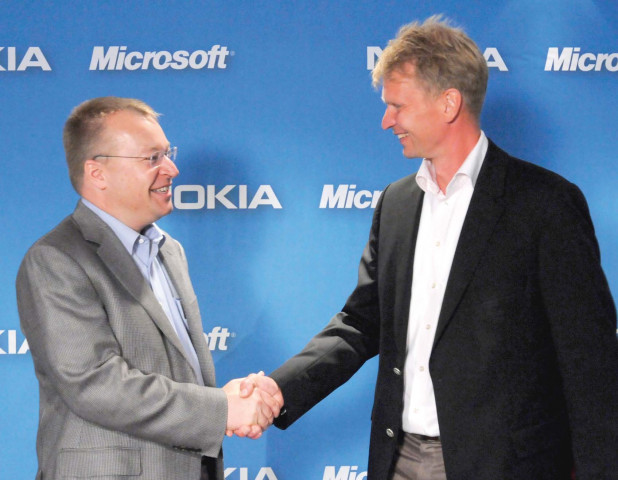Can Microsoft salvage Nokia’s ‘burning’ platform
Nokia CEO Stephen Elop recently sends out a heart-felt memo to the company asking for radical changes.

Can Microsoft salvage Nokia’s ‘burning’ platform
The memo came a day before Nokia’s announcement of an alliance with Microsoft. Nokia now plans to use Microsoft’s mobile platform as the primary platform for its new smart phones, ultimately letting go of it’s Symbian and Meego platforms which have gained little traction in the smart phone market.
Nokia’s woes began when it became increasingly interested in becoming a competitor in the mobile Operating Systems market. However, Nokia is not a software company by any stretch and it does not have the “software DNA” exclusive to Google, Microsoft and Apple. Samsung and LG realised this and decided to go all out on the hardware, partnering with Android. Nokia continues to defend it’s Symbian platform and then again it’s Linux based MeeGo platforms with little success.
The news of Nokia’s partnership with Microsoft has received mixed reviews. It marks a critical juncture for both companies desperately needing to reinvent themselves to compete with Apple’s iPhone and Google’s Android based mobile phones. Investors sent Nokia’s shares plummeting on the news, reasoning that Nokia would have been better off partnering with Android which have proven its dominance. Nokia sympathisers argue that going with the Android platform is a long-term losing strategy because Nokia, LG and Samsung will all be offering the same product in a highly competitive market. The detractors are afraid that Nokia is betting all its hopes on Microsoft which has yet to prove its mobile platform.
Apple’s iPhone has been a runaway success story. Google entered the lucrative smart phone market with it’s Android platform less than two years ago and just this past week, overtook Apple’s iPhones in sales volumes. Microsoft on the other hand was unsuccessful with its Zune music player which hoped to compete with the iPod. It also failed to reinvigorate its mobile platform which failed to respond to the iPhone and Android platforms.
The climb is even harder for Nokia as CEO Elop notes in his memo, “Let’s not forget about the low-end price range. In 2008, MediaTek supplied complete reference designs for phone chipsets, which enabled manufacturers in the Shenzhen region of China to produce phones at an unbelievable pace. By some accounts, this ecosystem now produces more than one third of the phones sold globally - taking share from us in emerging markets”. The low-end market offers razor-thin margins and with China’s presence in this market, margins will continue to decline.
“The game has changed from a battle of devices to a war of ecosystems,” Elop told reporters at a joint news conference with Microsoft CEO Steven Ballmer.
Nokia’s juncture also marks a major shift in the mobile phone market where power has now shifted away from hardware makers and into the hands of the software giants.
The writer is heading Online Strategy and Development at Express Media and can be contacted at aleem.bawany@express.com.pk
Published in The Express Tribune, February 14th, 2011



















COMMENTS
Comments are moderated and generally will be posted if they are on-topic and not abusive.
For more information, please see our Comments FAQ